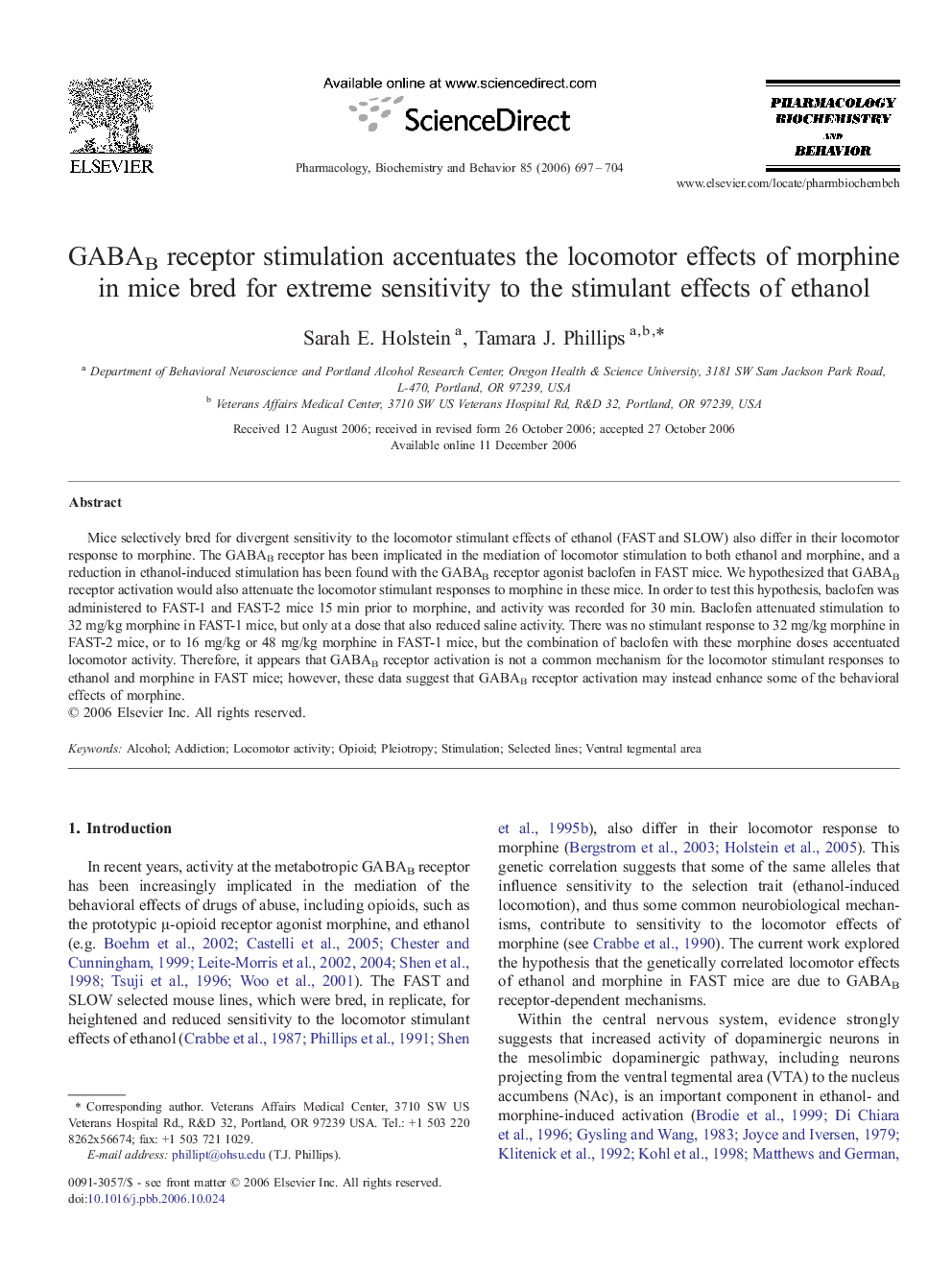| Article ID | Journal | Published Year | Pages | File Type |
|---|---|---|---|---|
| 2014232 | Pharmacology Biochemistry and Behavior | 2006 | 8 Pages |
Mice selectively bred for divergent sensitivity to the locomotor stimulant effects of ethanol (FAST and SLOW) also differ in their locomotor response to morphine. The GABAB receptor has been implicated in the mediation of locomotor stimulation to both ethanol and morphine, and a reduction in ethanol-induced stimulation has been found with the GABAB receptor agonist baclofen in FAST mice. We hypothesized that GABAB receptor activation would also attenuate the locomotor stimulant responses to morphine in these mice. In order to test this hypothesis, baclofen was administered to FAST-1 and FAST-2 mice 15 min prior to morphine, and activity was recorded for 30 min. Baclofen attenuated stimulation to 32 mg/kg morphine in FAST-1 mice, but only at a dose that also reduced saline activity. There was no stimulant response to 32 mg/kg morphine in FAST-2 mice, or to 16 mg/kg or 48 mg/kg morphine in FAST-1 mice, but the combination of baclofen with these morphine doses accentuated locomotor activity. Therefore, it appears that GABAB receptor activation is not a common mechanism for the locomotor stimulant responses to ethanol and morphine in FAST mice; however, these data suggest that GABAB receptor activation may instead enhance some of the behavioral effects of morphine.
